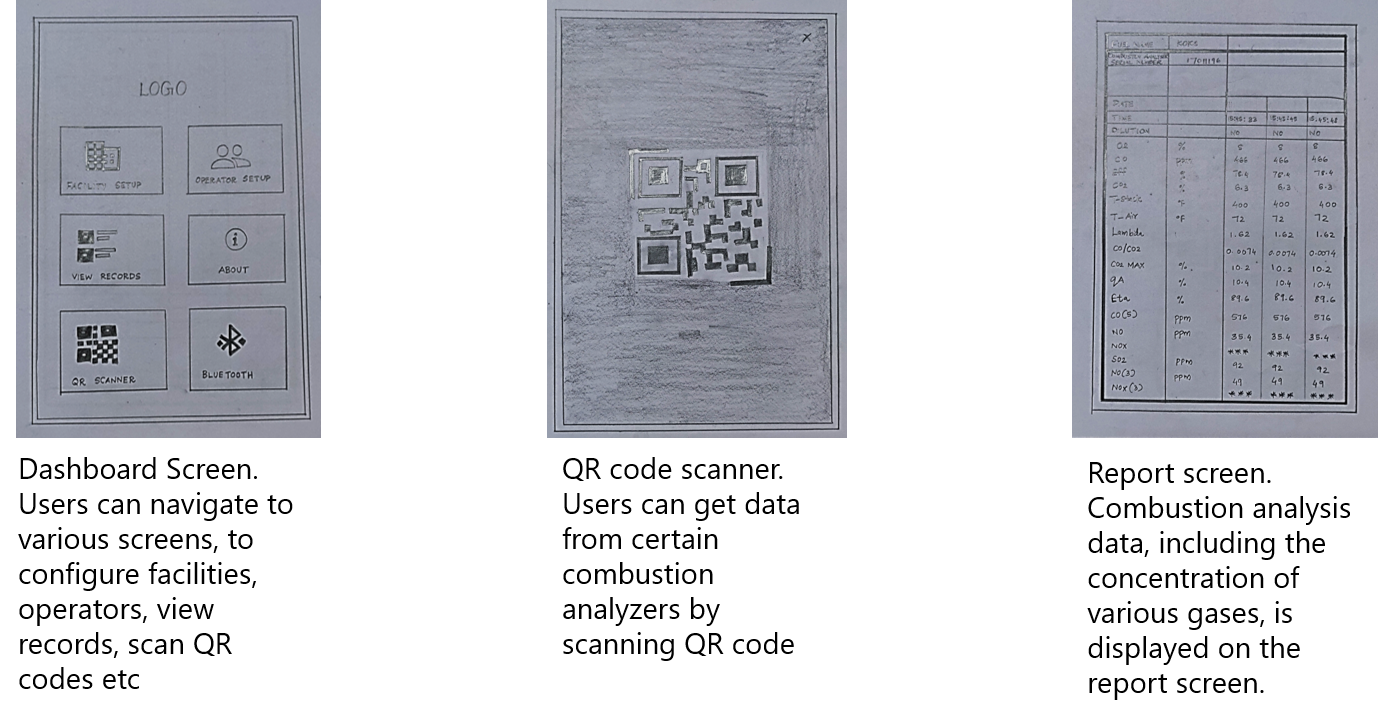The Context
According to the National Fire Protection Association, between 2011 and 2015, an average of 37,910 fires were reported each year at industrial or manufacturing properties, in the U.S alone. Every year, industrial fires lead to an estimated 16 civilian deaths, 273 civilian injures, and over $1.2 billion in direct property damage. To prevent such mishaps, several proactive safety tests are conducted in industrial installations across the world, using specialized instruments. A leader in the design, manufacture and service of equipment for the measurement and detection of combustible gases, was developing a hand held combustion analyzer to commission, tune, maintain and certify industrial boilers. Tismo was entrusted with developing a mobile app to display the data from the instrument.
The Problem
The mobile app developed by Tismo would have to support the streaming of real time data via Bluetooth Low Energy (BLE), from the combustion analyzer. In certain cases, the mobile app would have to scan and retrieve data from QR codes. Additionally, the app would have to support user management, instrument configuration, calibration and diagnostics. Moreover, the mobile app would have to be dynamic enough to support new features being planned for future versions of the combustion analyzer.
Related Read: Web HMI Using Sencha Ext JS for Industrial Gas Analyzer
The Solution
Tismo recommended that native mobile apps be developed on Android and iOS to communicate with the combustion analyzer. This recommendation was based on the fact that BLE is prone to sporadically misbehave on Android. Any break in data received from an instrument such as a combustion analyzer could lead to safety concerns. This problem can be dealt with on a case-by-case basis and is far easier to solve on a native app as compared to a cross-platform app. Additionally, native apps utilize the platform’s capabilities to the fullest and are able to harness virtually all resources available on the mobile device. The risk of downtime from crashes or application freezes is quite low. Furthermore, native apps can be easily adapted to accommodate new feature implementation, making them future proof.

Storyboard for Combustion Analyzer Mobile App
Tismo developed separate native apps for Android and iOS, to communicate with and retrieve data from combustion analyzers. Java and XML were used to develop the mobile app for Android while Swift was used to develop the iOS mobile app. The Realm Database, which stored data as objects, was used as it is faster and easier to use when compared to other options like SQLite and CoreData. The MVC architectural pattern was used in the development process.
On startup, the application would automatically scan for nearby combustion analyzers. Users could select and connect to an available combustion analyzer using BLE, manage users, and configure, calibrate, diagnose or run tests on the device. Real time data would be received from the combustion analyzer, over Modbus on BLE and the app would automatically generate test reports. These could be saved in CSV, XML or PDF file formats. This data included the type of fuel under analysis, the percentage concentration of more than 15 gases and the temperature of the boiler under test. Alternately, users could scan QR codes from certain combustion analyzers to obtain the device reading at that point of time. The app also gives users the provision to add comments while saving data and to export test reports via email.
Also Read: Cross-platform Mobile App using React Native
Summary
Tismo developed native apps for Android and iOS, to communicate with and retrieve data from combustion analyzers, over BLE. Users could select and connect to an available combustion analyzer, manage users, and configure, calibrate, diagnose or run tests on the device. The app was designed to support new features being planned for future versions of the combustion analyzer.

